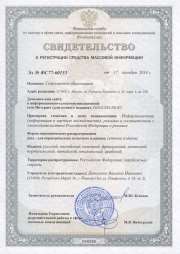MAIN PAGE
> Back to contents
Publications of Shirinkina Elena Viktorovna
|
Theoretical and Applied Economics, 2023-4
|
|
Shirinkina E.V., Volkorez A.A. - Classification of risks in the risk management system of innovative development of Russian regions
|
|
pp. 59-72
|
DOI: 10.25136/2409-8647.2023.4.68755
Abstract: The relevance of this study is due to the fact that risk management is a task assigned to each region of the Russian Federation, which is of particular importance in modern conditions. On the one hand, this is due to the requirements of the global market, where innovation is a recognized tool for improving competitiveness, solving socio-economic problems of society. On the other hand, this is necessary due to the increasing distortions of key indicators of regional innovative development of the country, which requires taking measures to preserve the sustainable development of highly innovative territories and the intensification of laggards, taking into account the sectoral and other specifics of their functioning. The subject of the study is the mechanism of risk management based on the identification and classification of risks and opportunities of the eastern regions of Russia in ensuring effective innovative development. The novelty of the research lies in the fact that the authors present the key directions for improving the risk management mechanism of the innovation space of the regions of Russia, taking into account the differentiation of the regional economic space in the direction of establishing a high-quality and sustainable system of interaction between objects and subjects of the innovation space based on the identified priorities. Due to the fact that risk management of innovative development has been the object of research in domestic dissertations for more than 25 years, the question arose: what risks were identified, and recommendations for their solution were offered by the authors during this period ? How much has the set of analyzed risks and challenges changed (and has it changed) ? How has the content of the approaches and methods of risk management proposed for the activation of innovative development changed ? To answer these questions, more than 60 doctoral dissertations, defended over the past 25 years, devoted to risk management of innovative processes in the regions, were analyzed.

|
Shirinkina E.V. - The role of corporate universities in the modern world
|
|
pp. 1-10
|
DOI: 10.25136/2409-8736.2023.1.30091
Abstract: The relevance of the research is due to the fact that corporate universities are experiencing an era of transformation today. Despite the rapid growth in the last 20 years of the population of corporate universities around the world, including in Russia, their global and regional associations are young and logically focus on the development of formats for the exchange of experience of their participants and, to a lesser extent, other tools for the institutionalization of the professional community. The subject of this research is to identify and review the main factors influencing the transformation of the role of corporate universities in the modern world, and the key global trends in corporate education to date. In the course of the work, the best practices and cases of the largest companies were analyzed. The empirical basis of the study was the cases of Sberbank Corporate University, Engie, Lufthansa, Unilever, GlobalCCU, etc. Each analyzed source was evaluated for the content of information about factors that affect and may affect corporate training, and global trends in the field of corporate training. The scientific novelty of the research consists in determining the factors influencing the trends of corporate training, their prioritization and a structured description of the identified factors and trends. The practical significance of this research lies in determining the role of a corporate university in the modern world, which will allow companies to form drivers of all transformations: business, operations, technologies and people.

|
Conflict Studies / nota bene, 2022-4
|
|
Shirinkina E.V. - Development of innovations in a crisis: change strategies
|
|
pp. 72-79
|
DOI: 10.7256/2454-0617.2022.4.38370
Abstract: The relevance of the study is due to the fact that for many companies the crisis has become a catalyst for transformation. However, not every change is the result of a truly strategic choice. In this regard, the author investigates transformation strategies in a crisis, which is the subject of the study. The author substantiates that in the conditions of the crisis, these transformations will also affect offline services. A strategizing model is proposed, which consists in a kind of reboot of companies. The practical significance of the study lies in the fact that it will allow companies to set priorities differently in a crisis, reduce loyalty to familiar brands, and form new requirements for customer experience in a physical environment. The scientific novelty of the research lies in the substantiation of a new model-the competitiveness matrix, which will help to take a fresh look at the allocation of resources. It is based on the following statement: what companies are successful in today will not necessarily be in demand tomorrow. The axes of the matrix show the degree of competitiveness of the business today and the market potential in the future. It is important for companies to anticipate these changed expectations and turn them into their advantages. For example, in the retail and restaurant sector, the focus will shift from meeting the basic need to organizing leisure for the consumer, so you will need to look for ways to make this experience unique and especially memorable.

|
Shirinkina E.V. - Methods of data mining and educational analytics
|
|
pp. 51-67
|
DOI: 10.25136/2409-8736.2022.1.37582
Abstract: The relevance of the study is due to the fact that there are currently more questions than specific answers on the topic in the context of intellectual analysis of educational data: how it is done, for what and how we can use it, what metrics to include in the sample and how to make forecasts. Undoubtedly, in the coming years there will be a transition from discussions to the practical implementation of educational analytics in educational processes. The purpose of the study is to systematize the methods of intellectual analysis of educational data in the context of the difference between educational analytics and pedagogical diagnostics and other methods of data collection. The results of the study will help to build a learning strategy and combine the objectives of the training program with the effectiveness of the educational process and the expected results from the students. In this regard, the author considers the types of educational analytics. The scientific novelty of the research lies in the systematization of the areas of research interests related to data mining in education and educational analytics. It is proved that educational analytics in combination with intellectual analysis of educational data makes it possible to develop accurate models that characterize the behavior of students, their properties, weaknesses and strengths of content and interaction with it, team and group dynamics. The practical significance of the study lies in the fact that the methods considered will allow to assess the current state of the training system or program, predict the desired results and draw up a roadmap of planned changes. For pedagogical designers and methodologists, the presented methods will become the foundation for optimizing the program. Thanks to the presented methods, students receive the most relevant, engaging and meaningful educational experience.

|
Shirinkina E.V. - Development of the culture of continuing education
|
|
pp. 29-37
|
DOI: 10.25136/2409-8736.2021.4.36747
Abstract: The subject of this research is the basic models of continuing education used by the representatives of business, higher education and the government. The object of this research is the process of continuing education in Russia as the response to the challenges of the new job market. Analysis is conducted on the context of the emergence of the need for continuing education of the professionals alongside the currently implemented models of such education in Russia and worldwide. The data acquired in the authorial quantitative research conducted in September 2021 in the format of online questionnaire served as the empirical basis for this research. The survey involved 211 specialists from 26 different fields of activity responsible for staff training in Russian organizations. The analytical research is based on the data of the VI International Conference “Beyond Training: Continuing Education for the New Job Market” held jointly by SberUniversity and the European Foundation for Management Development (EFMD) with the participation of the Sberbank Charitable Foundation “Contribution to the Future”. The author seeks to scientifically substantiate the question of why continuing education of the professional has become a topical issue for the organizations. A list of cyclical and sudden trends affecting the organizations, their strategies and business models is explored. The author traces the changes in professions and skills essential for the future specialists. The practical importance of this work lies in description of the new models of continuing education in the organization, which would allow the companies to set the new skill sets that can be acquired in the course of continuing education system the new paradigm in the conditions of new reality.

|
Theoretical and Applied Economics, 2021-2
|
|
Shirinkina E.V. - Multifactor model of the development of digitalization of corporate business processes
|
|
pp. 1-10
|
DOI: 10.25136/2409-8647.2021.2.32665
Abstract: This article provides the results of assessing the factors that impact the cross-sectoral economic and technological effects in the development of digitalization of business processes. The goal of this work is to form a multifactor model for the development of digitalization of corporate business processes and determine the degree of impact of the factors included in this model. The author outlined and tested several hypotheses, the general idea of which is reduced to an assumption that at current stage of economic development in Russia, corporations are actually subject to the emergence of trend in the dynamically changing digital world, which requires quick and effective response to the digital development by increasing investment in digital technologies and intensifying their use in business processes. The empirical framework is comprised on the data provided by the Institute for Statistical Studies and Economics of Knowledge of the Higher School of Economics, as well as Federal State Statistics Service on the current state of digital and business activity. The author conducts a regression analysis for assessing the importance of factors included into the model.; advances and process the hypotheses on the influence of factors upon the index of digitalization and the level of corporate business activity. The acquired results serve as the evidence base for most of the advanced hypotheses, thereby proving the theoretical assumption on the existence of certain consequences of the digital business development. The built multifactor model for the development of digitalization of corporate business processes and assessment of importance of the factors included therein would allow the companies to develop proper solutions aimed at increasing the level of digitalization. The new positions directly depend on the continuous technological changes. As a result, the gap between business needs and competencies of the workforce appears to be the key challenge for the companies.

|
Theoretical and Applied Economics, 2021-2
|
|
Shirinkina E.V. - Assessment of the factors contributing to the formation of regional budget of the Khanty-Mansi Autonomous Okrug –Yugra
|
|
pp. 11-21
|
DOI: 10.25136/2409-8647.2021.2.32673
Abstract: The relevance of this research is substantiated by the currently growing role of financial relations in the formation and execution of budgets of the constituent entities of the Russian Federation. The formation and implementation of budgetary policy of the Russian Federation determines the economic and financial framework for functionality of the region and life of the society as a whole. The goal is to assess the factors contributing to the formation of regional budget of the Khanty-Mansi Autonomous Okrug – Yugra. The subject of this research is the revenues and expenditures of the budget of Khanty -Mansi Autonomous Okrug – Yugra. Practical importance of the conducted research lies in the obtained results that allow the regional budgets to choose the way for improving budget security. The information base is comprised of the scientific works of Russian and foreign authors, educational-methodological publications, materials of the scientific conferences dedicated to the formation of regional budgets, legislative and normative acts of the Russian Federation, reference materials of the Federal State Statistics Service Of the Russian Federation. The main conclusion consists in determination of the factors influencing the regional budget of the Khanty-Mansi Autonomous Okrug – Yugra. The author's special contribution lies in evaluation of the specificity of formation of budget of the Khanty-Mansi Autonomous Okrug – Yugra, as well as the methods aimed at minimization of budget risks for solution of the regional budgetary problems. The formulated recommendations for increasing budget security would promote the innovative development and improvement of budgetary and tax relations of the regional budgets. The theoretical significance consists in advancement of the theory of regional economy. The acquired results can be applied in theoretical substantiation of the strategic tasks of managing regional budgets.

|
Politics and Society, 2021-2
|
|
Shirinkina E.V. - Transformation of the world job market in the conditions of the Fourth Industrial Revolution
|
|
pp. 8-28
|
DOI: 10.7256/2454-0684.2021.2.36764
Abstract: The relevance of this research is substantiated by the fact that the world job market is currently under the influence of the Fourth Industrial Revolution (Industry 4.0). The goal lies in assessing the impact of cyclic and unexpected trends upon the job market, and thus, the forms of job management and employment functions. In this regard, analysis is conducted on the academic theories in the context of conceptualization of the impact of Industry 4.0 upon the job market and employment functions. The long-term trends in transformation of the job market are determined. The empirical basis of this research is comprised of the statistical data provided by Rosstat and the Ministry of Science and Higher Education of the Russian Federation, as well as the resources of analytical articles and scientific publications, including the materials of international organizations, leading consulting companies, global associations, leading educational institutions, other active participants of global educational environment, and job market experts. An overview is given to the trends that affect the companies, their strategies and business models; the impact of such trends upon the transformation of current professions and the emergence of new professions; skills required for these professions. The scientific novelty lies in substantiation of the concept of skill-biased technical change (SBTC) and the theory of routine-biased technological change (RBTC). The presented materials would allow the companies to combine business news with fundamental training of specialists for going along the new career trajectiory in light of the new technological challenges, which defines the practical value of this research.

|
Shirinkina E.V., Kelchevskaya N.R. - The system of “Tuning of educational structures” in terms of formation of the single educational space
|
|
pp. 33-52
|
DOI: 10.25136/2409-8736.2020.1.31911
Abstract: The subject of this research is the system of educational structures in higher education. The object of this research is the experience of European countries in formation of the single educational space. Comparative characteristics of the European and Russian educational structures is presented. This allows formulating the contradictions within educational infrastructure of the system of Russian higher education. The article carries an analytical-problematic character. The relevance is substantiated by the fact that Russia’s accession into the European educational space led to a number of contradictions, since each European country had its own “coordinate system” within the system of higher education, while the job market is uniform for everyone. The article analyzes the European experience with regards to establishment of single educational space, as well as pursues correlation between the European and Russian educational structure. The main conclusion consists in the formation of interrelation matrix of the elements of educational process. The author’s special contribution is the application of systemic approach towards creation of educational structures within the system of higher education. The novelty lies in building the system of “Tuning of educational structures” as implementation of methodological principles of European education in the Russian universities.

|






